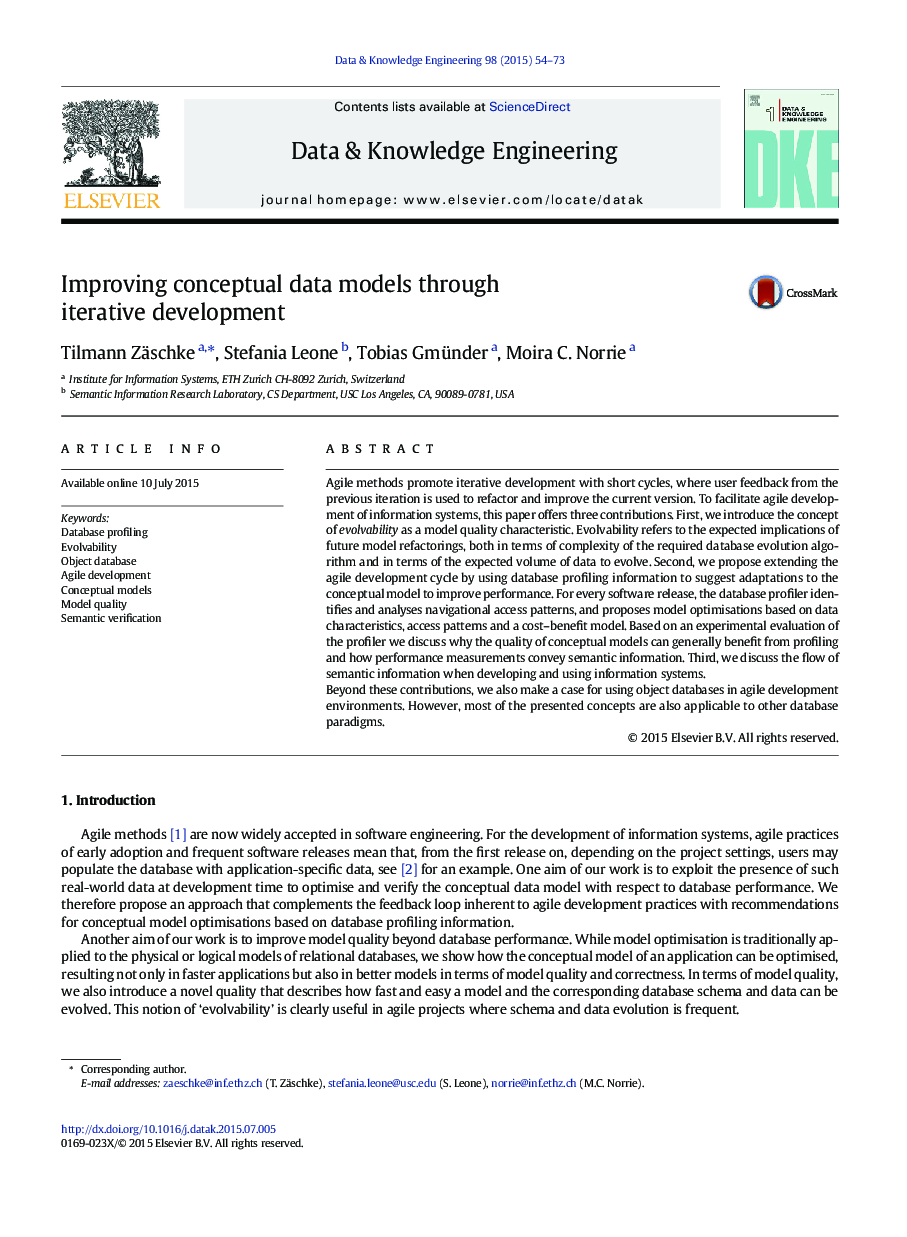| Article ID | Journal | Published Year | Pages | File Type |
|---|---|---|---|---|
| 378770 | Data & Knowledge Engineering | 2015 | 20 Pages |
Agile methods promote iterative development with short cycles, where user feedback from the previous iteration is used to refactor and improve the current version. To facilitate agile development of information systems, this paper offers three contributions. First, we introduce the concept of evolvability as a model quality characteristic. Evolvability refers to the expected implications of future model refactorings, both in terms of complexity of the required database evolution algorithm and in terms of the expected volume of data to evolve. Second, we propose extending the agile development cycle by using database profiling information to suggest adaptations to the conceptual model to improve performance. For every software release, the database profiler identifies and analyses navigational access patterns, and proposes model optimisations based on data characteristics, access patterns and a cost–benefit model. Based on an experimental evaluation of the profiler we discuss why the quality of conceptual models can generally benefit from profiling and how performance measurements convey semantic information. Third, we discuss the flow of semantic information when developing and using information systems.Beyond these contributions, we also make a case for using object databases in agile development environments. However, most of the presented concepts are also applicable to other database paradigms.
